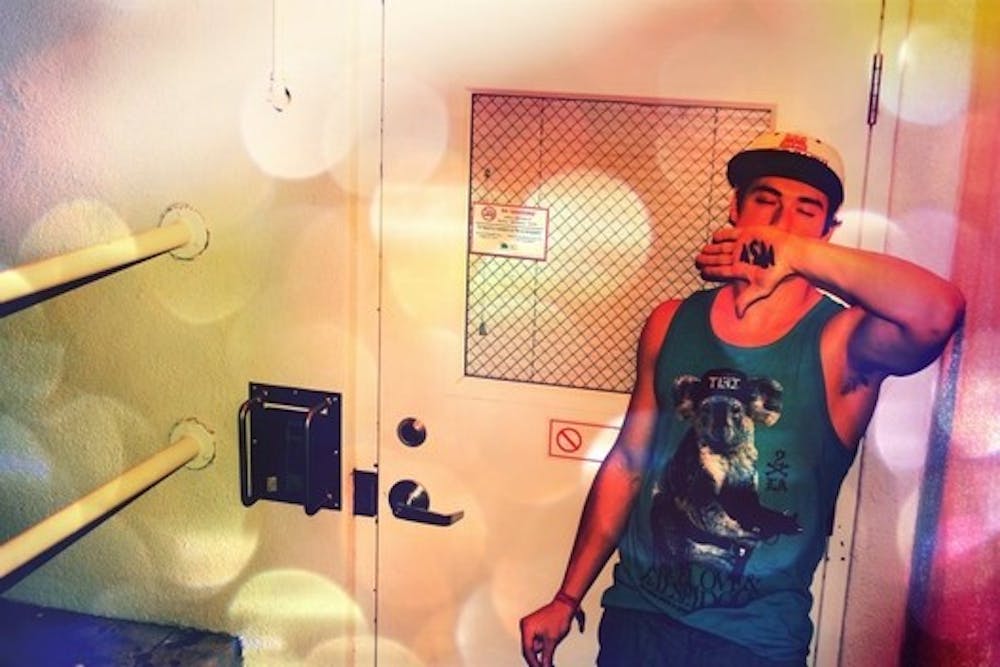David Blazer, otherwise known as A Sol Mechanic, will be opening for Mount Kimbie on Friday at Jazz and Grooves' fall concert. Jazz and Grooves contributor, Kevin Crouch, got a chance to talk to the producer. Read the artist spotlight on Jazz and Grooves' blog. Head over to the Rotunda at 9PM on Friday to watch David Blazer perform.
Street: What does your name come from?
David Blazer: Around 2-3 years ago (in the middle of high school) I started producing music and I thought my music represented something bright or sunny, you know? It's a pun basically. It can mean soul music or it can mean the sun; I interpret it as a sun. It's a parallel to something nonmusical and more tangible.
Street: How long have you been making music?
DB: I've been making music since I was 12 but I've been producing since senior year of high school. I never exposed it to anyone until I started a SoundCloud page in order to share my beats with people. It didn't need to be a one-way street.
Street: Who do you make music for?
DB: I'll make certain songs with the drive that a greater amount of people will appreciate it because I know I can. But I also have an interest in making music that is so far from even my own preference because that's what makes you a great producer—being able to balance compromise. I don't make music for a lot of money. I don't have a lot of gear. It allows me to settle down and think about the music.
Street: How did you get signed to Stereocure? What is it like to be on Stereocure?
DB: Those guys are great. I met them two summers ago. They asked me to play a show at the Art House Live, to open up for a couple friends I knew. We became friends from there and we've been talking for a year now. They're the most welcoming crew. Everyone has their own style in our group. We branch off each other but we don't jack each other's style.
Street: Where do you find inspiration? How do you try to channel your influences while still making original music?
DB: That's a great question. I'd have to say inspiration accounts for about 50% of my work. I'll go three days just recording and listening to my own music and reflecting on it and the next part of the week I'll just listen to other people's beats and be open to that. I try to talk to people about [producing] because I have many interests in music and I have the ability to branch out from what I'm doing now. It should be completely different in a couple of years with that mindset. I mean, I listen to guys like Ta-ku, all of the Selection crew, of course Brainfeeder. They're probably the biggest influences on my life.
Street: How do you approach your live set?
DB: My live set is my laptop and my MPD and that's about it (laughs). I used to have a synthesizer but I had to get rid of it.
Street: On your SoundCloud tagline you say you're "inspired by street art." What does this mean? What aspects of street art translate into your music?
DB: I would have to say that the collage nature of a lot of street art inspires me. The fact that my work isn't stylized to a point where I'm sticking to a genre. I like that I'm not looking at music from just one perspective which translates into most street art. Everyone has something they wanna share with the world. I feel like that attitude is applied to beat-making in many ways and in music composition as a whole.
Street: If you were trapped in a corner and endless wave of 7-year-olds how many do you think you could take out?
DB: (laughs) oh that's great. Probably around 4 and a half. The half being the toddler that gets me on the ground but I'm still fighting back….
[soundcloud url="https://api.soundcloud.com/tracks/103995439" width="100%" height="166" iframe="true" /]
[soundcloud url="https://api.soundcloud.com/tracks/109818126" width="100%" height="166" iframe="true" /]

